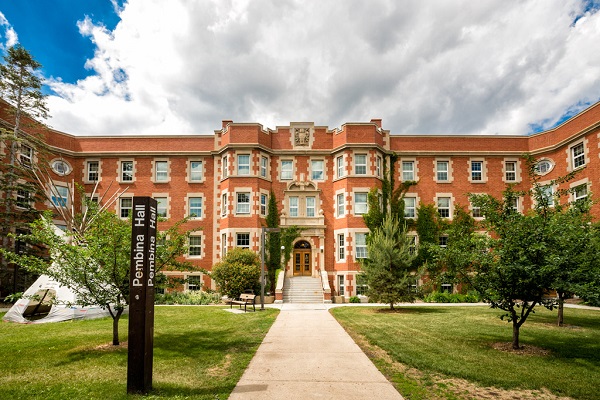University of Alberta’s water research centre draws on deep well of expertise
The University of Alberta has launched a new interdisciplinary research centre devoted to tackling a range of global challenges related to water.
Based in the Department of Civil and Environmental Engineering, the centre will draw on expertise across faculties to examine problems of water supply, demand, treatment, reuse and infrastructure. The launch follows decades of world-leading research at the U of A exploring water-related topics, says director Mohamed Gamal El-Din.
It’s not just about engineering and science. It also includes sociology, rural economy, Indigenous communities, and anything related to water across the entire university to cover a wide variety of water-related problems.
“This could put us on the national and international map, highlighting the research we’ve been doing for years and putting us in contact with other centres we might end up collaborating with.”
U of A researchers will work with national and international institutions, governments and academia on fundamental and applied research, says Gamal El-Din. The centre will develop a water-related global network of experts, practitioners and academics across disciplines and create a pipeline to facilitate the transfer of knowledge to a wide range of collaborators including water industries, government ministries, utilities, agriculture, and municipalities and communities.
“We also want to train students and postdoctoral fellows in water issues, hopefully making their learning broader by our collaborations with one another,” adds the centre’s associate director, Evan Davies.
“And it will help and encourage new researchers — including some of our assistant professors — to learn a more collaborative way of doing research, and teach us as well how to do it. Working together we can accomplish a lot more for society than working individually.”
Areas of research focus will be divided into three categories — water supply; water demand, treatment and reuse; and water infrastructure. The centre plans to work directly with remote, underserved and Indigenous communities to tackle critical issues of water supply and safety.
Epcor has provided seed funding of $1.4 million, and the centre is also seeking funding from Alberta Innovates, says Gamal El-Din. Researchers in the Faculty of Engineering hope to collaborate with colleagues in the U of A’s College of Natural and Applied Sciences as well as in the health and social sciences to provide “integrated solutions to critical water-related problems,” he says.
“We’re trying to cover the entire water cycle,” says Davies. “That would include rainfall, infiltration into soil, runoff into rivers, groundwater — the whole hydrological cycle — as well as how water is used in society in municipal, industrial, commercial and agricultural contexts, and how all of that affects the environment.”
He adds that researchers will also look at how extremes related to climate change, such as droughts and flooding, affect water resources and communities.
“It really is supposed to be what is sometimes called a one-water approach to a very large and complicated interconnected system.”

